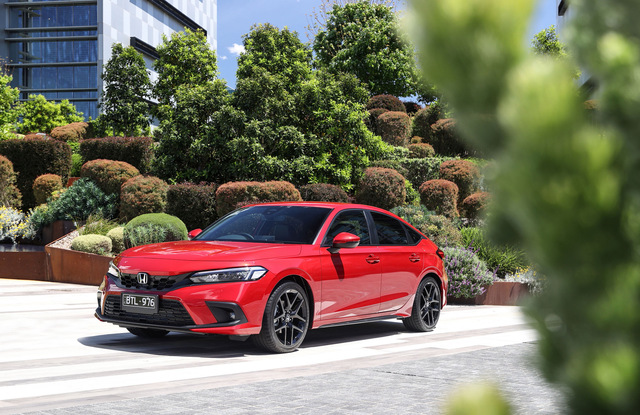nxbet
 nxbet
nxbet
The N-dubz singer's message to her campmates after she departed Australia has been revealed I'm A Celebrity's Tulisa Contostavlos has admitted the show didn't have the impact she expected. The N-Dubz singer was the third contestant to exit during this season of TV's toughest entertainment challenge. Tulisa broke tradition after her exit as she soon returned to the UK rather than remain in a luxury hotel in Australia for the duration of the show. A new programme tomorrow will explore what happened after each campmate exited the show. I'm A Celebrity Coming Out arrives on ITV at 9pm on Friday and spoilers have revealed Tulisa's reaction the moment after she left the camp. The 36-year-old was greeted by her friend Michelle once she was eliminated. However, she admitted the show didn't change her in the way that she expected. The former X Factor judge said: "I said I was going to come out a different person but I don’t feel different, I feel more strong in who I am.” Tulisa was welcomed back into the hotel by fellow evicted campmates, Dean McCullough and Jane Moore who greeted her with wine and pizza. The singer travelled back to the UK soon afterwards and wiped her social channels of all mention of her I'm A Celebrity stint. However, there appears to be no hard feelings with her campmates as she sent a message to GK Barry ahead of the show's final. The campmates enjoyed a drink reception ahead of the final episode when only Coleen Rooney , Danny Jones and Reverend Richard Coles remained on the show. Tulisa sent a message to GK Barry to share with the rest of the campmates, which will air in tomorrow's episode. She said: "Hello everybody, I’m so proud of you all, you’ve absolutely smashed it, now I want you to go and eat yourselves into an oblivion. "I’m so sorry that I can’t be there so have a big old drink for me. I love you lots like jelly tots and I will see you soon.” After her return to the UK, Tulisa's revealed she needed a bit of "me time" as she said : "I’m just doing a little video to clear a couple things up. "Just so you know, when I came out of the jungle, I felt fine first of all and then that evening my friends went to bed. I was on my Instagram trying to have a nice little scroll at some funny stuff. I was getting a lot of attention, a lot of bombarding in all the most positive way. But because it’s been a while for me I can get overwhelmed quite easily." She added: "And I just started to feel overwhelmed. I thought do you know what, I really just need to take a bit of time for me and just chill. This is all feeling just a little bit much at the moment. I’m just going to archive all my stuff to do with the jungle. Then when the time is right and I’ve had a little time to process I’m going to make my own reels of all my best bits I really like.”
The world approved a bitterly negotiated climate deal Sunday committing wealthy historic polluters to $300 billion annually for poor and vulnerable nations that had demanded far more to confront the crisis of global warming. After two exhaustive weeks of chaotic bargaining and sleepless nights, nearly 200 nations banged through the contentious finance pact in the early hours beneath a sports stadium roof in Azerbaijan. Nations had struggled to reconcile long-standing divisions over climate finance. Sleep-deprived diplomats, huddled in anxious groups, were still revising the final phrasing on the plenary floor before the deal passed. At points, the talks appeared on the brink of collapse, with developing nations storming out of meetings and threatening to walk away should rich nations not cough up more cash. In the end -- despite repeating that no deal is better than a bad deal -- they did not stand in the way of an agreement, despite it falling well short of what they want. The final deal commits developed nations to pay at least $300 billion a year by 2035 to help developed countries green their economies and prepare for worse disasters. That is up from $100 billion now provided by wealthy nations under a commitment set to expire -- and from the $250 billion proposed in a draft Friday. That offer was slammed as offensively low by developing countries, which have demanded at least $500 billion to build resilience against climate change and cut emissions. A number of countries have accused Azerbaijan, an authoritarian oil and gas exporter, of lacking the experience and will to meet the moment, as the planet again sets temperature records and faces rising deadly disasters. Wealthy countries and small island nations have also been concerned by efforts led by Saudi Arabia to water down calls from last year's summit to phase out fossil fuels. The United States and EU have wanted newly wealthy emerging economies like China -- the world's largest emitter -- to chip in. The final draft encouraged developing countries to make contributions on a voluntary basis, reflecting no change for China which already pays climate finance on its own terms. Wealthy nations said it was politically unrealistic to expect more in direct government funding. Donald Trump, a sceptic of both climate change and foreign assistance, returns to the White House in January and a number of other Western countries have seen right-wing backlashes against the green agenda. The deal posits a larger overall target of $1.3 trillion per year to cope with rising temperatures and disasters, but most would come from private sources. bur-np-sct/lth/jjThe world approved a bitterly negotiated climate deal Sunday committing wealthy historic polluters to $300 billion annually for poor and vulnerable nations that had demanded far more to confront the crisis of global warming. After two exhaustive weeks of chaotic bargaining and sleepless nights, nearly 200 nations banged through the contentious finance pact in the early hours beneath a sports stadium roof in Azerbaijan. Nations had struggled to reconcile long-standing divisions over climate finance. Sleep-deprived diplomats, huddled in anxious groups, were still revising the final phrasing on the plenary floor before the deal passed. At points, the talks appeared on the brink of collapse, with developing nations storming out of meetings and threatening to walk away should rich nations not cough up more cash. In the end -- despite repeating that no deal is better than a bad deal -- they did not stand in the way of an agreement, despite it falling well short of what they want. The final deal commits developed nations to pay at least $300 billion a year by 2035 to help developed countries green their economies and prepare for worse disasters. That is up from $100 billion now provided by wealthy nations under a commitment set to expire -- and from the $250 billion proposed in a draft Friday. That offer was slammed as offensively low by developing countries, which have demanded at least $500 billion to build resilience against climate change and cut emissions. A number of countries have accused Azerbaijan, an authoritarian oil and gas exporter, of lacking the experience and will to meet the moment, as the planet again sets temperature records and faces rising deadly disasters. Wealthy countries and small island nations have also been concerned by efforts led by Saudi Arabia to water down calls from last year's summit to phase out fossil fuels. The United States and EU have wanted newly wealthy emerging economies like China -- the world's largest emitter -- to chip in. The final draft encouraged developing countries to make contributions on a voluntary basis, reflecting no change for China which already pays climate finance on its own terms. Wealthy nations said it was politically unrealistic to expect more in direct government funding. Donald Trump, a sceptic of both climate change and foreign assistance, returns to the White House in January and a number of other Western countries have seen right-wing backlashes against the green agenda. The deal posits a larger overall target of $1.3 trillion per year to cope with rising temperatures and disasters, but most would come from private sources. bur-np-sct/lth/jj
TikTok advertisers stay put after US appeals court upholds law forcing sale
Walmart says it's testing body cameras on some store employees
Stocks Slip Ahead Of Fed Meeting, Chipmakers Suffer From China's Threat, Bitcoin Spikes Above $107,000: What's Driving Markets Tuesday?
How to Change the Default Search Engine in Google Chrome
Are GK Barry and Ella Rutherford married? Footballer fuels marriage rumours with Instagram comment
After two exhaustive weeks of chaotic bargaining and sleepless nights, nearly 200 nations banged through the contentious finance pact in the early hours beneath a sports stadium roof in Azerbaijan. Nations had struggled to reconcile long-standing divisions over climate finance. Sleep-deprived diplomats, huddled in anxious groups, were still revising the final phrasing on the plenary floor before the deal passed. At points, the talks appeared on the brink of collapse, with developing nations storming out of meetings and threatening to walk away should rich nations not cough up more cash. In the end -- despite repeating that no deal is better than a bad deal -- they did not stand in the way of an agreement, despite it falling well short of what they want. The final deal commits developed nations to pay at least $300 billion a year by 2035 to help developed countries green their economies and prepare for worse disasters. That is up from $100 billion now provided by wealthy nations under a commitment set to expire -- and from the $250 billion proposed in a draft Friday. That offer was slammed as offensively low by developing countries, which have demanded at least $500 billion to build resilience against climate change and cut emissions. A number of countries have accused Azerbaijan, an authoritarian oil and gas exporter, of lacking the experience and will to meet the moment, as the planet again sets temperature records and faces rising deadly disasters. Wealthy countries and small island nations have also been concerned by efforts led by Saudi Arabia to water down calls from last year's summit to phase out fossil fuels. The United States and EU have wanted newly wealthy emerging economies like China -- the world's largest emitter -- to chip in. The final draft encouraged developing countries to make contributions on a voluntary basis, reflecting no change for China which already pays climate finance on its own terms. Wealthy nations said it was politically unrealistic to expect more in direct government funding. Donald Trump, a sceptic of both climate change and foreign assistance, returns to the White House in January and a number of other Western countries have seen right-wing backlashes against the green agenda. The deal posits a larger overall target of $1.3 trillion per year to cope with rising temperatures and disasters, but most would come from private sources. bur-np-sct/lth/jj
- Previous: d jeds hometel
- Next: pbet casino




